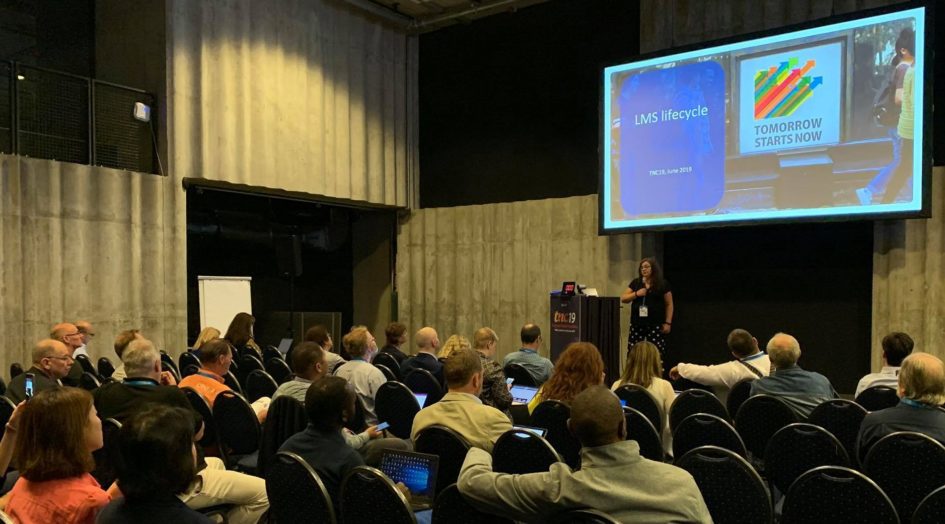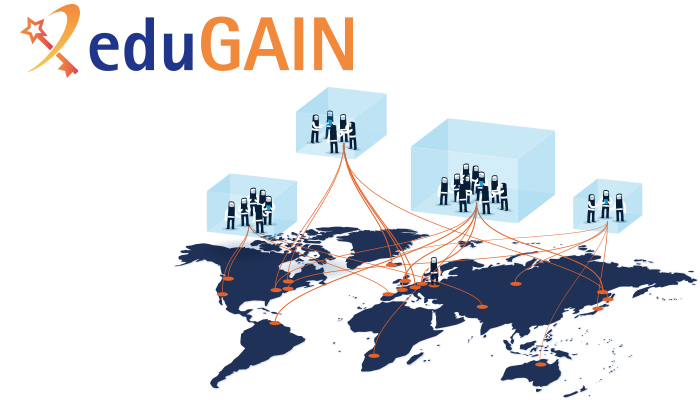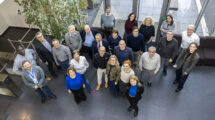How can NRENs support the technological evolution in education and research and collaborate at a European level? Over 40 NREN representatives dealt with this question at the workshop on NRENs and educational technologies which took place at TNC19 in Tallinn last month. The objective of the workshop, organised by SURF (NL), Jisc (UK), SUNET (SE), UNIT (NO), CARNET (HR) and GÉANT, was to explore further concrete starting points for NREN collaboration: NRENs understand the true meaning of collaboration as they exchange knowledge, develop services and carry out procurement activities jointly.
Education and research require renewed attention.
For more than 30 years, NRENs have been exclusively focusing on the needs of researchers, teachers and students. However, we believe that education and research require renewed attention. NRENs play a major role in the creation of opportunities in the digitisation process of research and education; research evolves as larger data sets are shared more frequently and, in parallel, education develops as its online presence and availability increase continuously. Helping education and research to face today’s challenges adds complexity to the NRENs’ traditional role of providing network and network services. NRENs are starting to realise that they need to begin creating value differently, not only by excelling technically, but also by paying attention to the changing needs of their stakeholder base: students, teachers and educational advisors.
How can we find new ways of working together as NRENs?
Early in 2019, GÉANT launched a survey among its 43 NREN members to find out how each organisation deals with educational issues. The survey results revealed that over half of the membership base faces such issues by creating digital learning and working environments; the survey also revealed trending topics such as learning analytics and open badges.
Students see no limits.
The workshop, which was run using the ‘open space method’, helped participants to identify possible topics for collaboration on educational services. How do we organise the mobility of millions of Erasmus+ paperless students?. It was one of the questions raised. As information about students need to be easily shared, it will be a lot easier to handle such information if the data is linked to the individual rather than the institution where he/she attends courses and carries out his/her studies. A practical solution for an e-identity scheme for European students (eduID) could have major transforming effects on education as, for instance, it could make it much easier for students to attend and follow courses at different institutions. What would change if institutions not only offered full programmes, but also modules that students can use to create their own personal programmes? As education becomes more and more modular, the need for micro credentialing – the evaluation of smaller units of study with partial certificates – is also increasing. Digitisation is also going to be vital in the creation of digital badges, whose development will undoubtedly move faster as soon as the collaboration between NRENs and education institutions starts focusing on the delivery of such badges also according to standards that would also enable their mutual recognition.
National and European acceleration.
Historically, NRENs have always co-operated with the IT departments within the education and research institutions, but this is changing. This year SURFnet, from a technology-driven perspective, started working with institutions such as the Association of Universities of Applied Sciences and VSNU in the Acceleration Agenda for Education Innovation with ICT. SUNET organises its work on educational services by hiring community and product managers within the universities. Such managers, who hold part time roles at SUNET, by being directly involved with educational development within the universities, are able to bring the day to day educational needs from the field into value creation and the innovative use of services.
Our aim is to organise new formats for collaborative and networked learning within our community. In the creation of a space for European collaboration, on one hand we should focus on standards, whilst on the other, prepare on how to organise a knowledge exchange that embraces the differences, as these give us the opportunity to learn. At CARNET, user needs have always driven service development, and education is no exception. But the powerful force that enabled CARNET to move even faster and dive more deeply into user perspective, came from primary and secondary school teachers, since these education professionals joined CARNET membership network over a decade ago. The creation of educational services specifically for Higher Education (HE) and their adaptation to the needs of the school teacher community was an important learning curve for CARNET. Today all educational services are being developed with teachers and students in mind with the goal of improving their work and lives.
Jisc, the UK digital body dedicated to the education and research communities, is recognised as an authority in the use of technology to support learning, teaching and the student experience. Jisc’s portfolio of services in this area, by meeting the needs of its HE subscribers, will enable students to have greater control over the pace, place and mode of their learning, in addition, it will make HE accessible to all those who wish to participate, on academic and vocational routes, in the UK and worldwide. Staff will use data-driven and evidence-based approaches to enhance their teaching practice and ensure that students remain engaged and get the best possible outcome from their studies.
In the coming years we will need to improve our work on innovation by collaborating more closely with education and research institutions. The work being carried out within GÉANT in this area offers inspiration on how we can innovate together in Europe. Nobody can predict what the future holds, but we have known for some time that working together is an important condition for success and that real flexibility does not have limits.
For more information please contact: nren-edu@lists.geant.org
Authors: Christien Bok (SURF), Birgitta Hemmingsson (SUNET), Gyöngyi Horváth (GÉANT), Dragana Kupres (CARNET), Markus Schneider (SUNET)








Add Comment